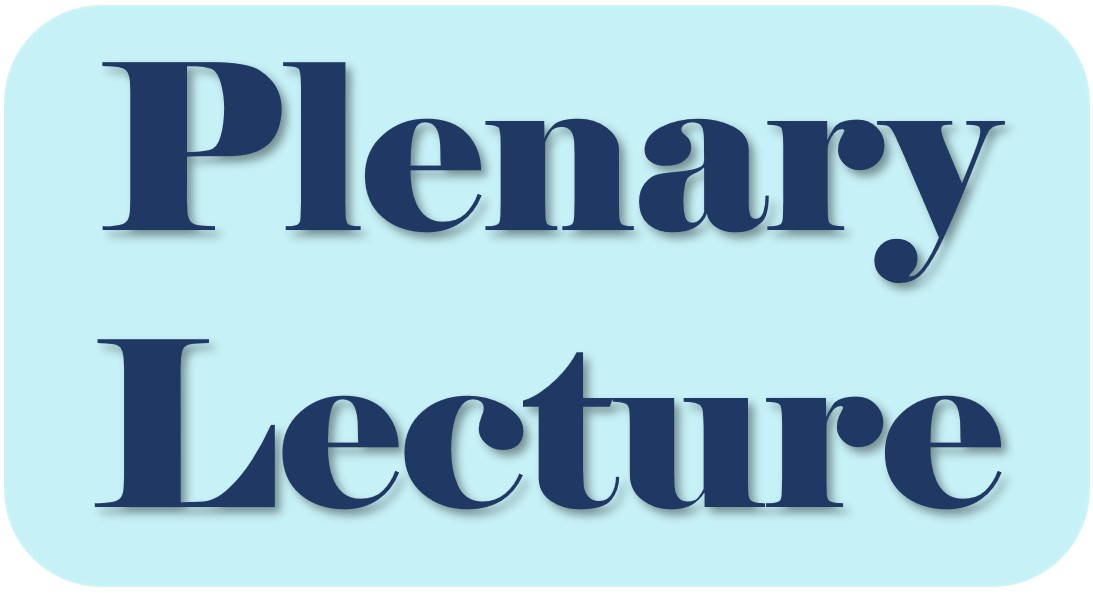Title
Turning Materials Informatics into Real-World Solutions – A Startup Journey –
Speaker

Mitsuru Irie
Co-founder and Director of MI-6
Date & Venue
Date:
August 5th, 2025
Venue:
Multi-Purpose Digital Hall, Ookayama Campus
Abstract
Abstract [PDF]
Materials Informatics (MI) is emerging as a transformative methodology in materials research.
By combining data-driven modeling with experimental workflows, MI enables researchers to accelerate discovery and gain deeper insight into the underlying structure–property relationships.
Central approaches include efficient exploration of high-dimensional design spaces, extraction of relevant features from spectroscopic or structural data, and adaptive experimental design.
These methods have already begun to shift the role of data in R&D—from retrospective analysis to proactive guidance.
While significant advances have been made on the algorithmic front, the practical impact of MI depends on how these techniques are translated into real laboratory settings.
Research challenges such as handling noisy observations, dealing with failed experiments, modeling time-varying systems, and improving exploration strategies to avoid local optima remain active areas of investigation [1–5].
At the same time, successful applications in domains like process optimization have illustrated how MI can deliver tangible value when tailored to domain-specific constraints [6].
At MI-6 Ltd. [7], our aim is to create solutions that support materials researchers in making better decisions.
Our ongoing development of the miHub® platform [8] reflects this mission.
Its design is informed by both theoretical insight and user experience.
Rather than implementing academic algorithms wholesale, we integrate the underlying ideas into workflows that are interpretable, responsive, and aligned with how experiments are actually run.
Looking forward, we see great potential in combining computational planning with laboratory execution.
This includes not only automation of synthesis and evaluation, but also the creation of systems that keep scientists in the loop.
Human-in-the-loop architectures are essential for ensuring that algorithmic suggestions remain contextual, explainable, and grounded in experimental realities.
Since co-founding MI-6, I have been leading solution development, business design, and organizational growth.
Through this experience, I have come to appreciate that sustainable innovation requires more than technical excellence.
It also demands strategic clarity, philosophical grounding, and a deep understanding of how people and organizations learn.
Having worked in both a large corporation and startups, I’ve observed how differently they approach growth and adaptation.
In a startup, building the right environment for sustainable progress is as important as the progress itself.
References
-
Sultana, S. S., Tanabe, T., Fausten, T., & Irie, M. (2025). Avoiding Premature Convergence to Local Optima with Adaptive Exploration for Genetic Algorithms. In Proceedings of the Genetic and Evolutionary Computation Conference (GECCO '25 Companion). https://doi.org/10.1145/3712255.3726640
-
Iwazaki, S., & Takeno, S. (2025). Near-Optimal Algorithm for Non-Stationary Kernelized Bandits. In Proceedings of the 28th International Conference on Artificial Intelligence and Statistics (AISTATS 2025). https://doi.org/10.48550/arXiv.2410.16052
-
Iwazaki, S., Tanabe, T., Irie, M., Takeno, S., Matsui, K., & Inatsu, Y. (2025). No-Regret Bayesian Optimization with Stochastic Observation Failures. In Proceedings of the 28th International Conference on Artificial Intelligence and Statistics (AISTATS 2025). https://openreview.net/forum?id=IEHddwHTIx
-
Iwazaki, S., Tanabe, T., Irie, M., Takeno, S., & Inatsu, Y. (2024). Risk Seeking Bayesian Optimization under Uncertainty for Obtaining Extremum. In Proceedings of the 27th International Conference on Artificial Intelligence and Statistics (AISTATS 2024), PMLR 238:1252–1260.
-
Iwazaki, S., Takeno, S., Tanabe, T., & Irie, M. (2023). Failure-Aware Gaussian Process Optimization with Regret Bounds. In Advances in Neural Information Processing Systems (NeurIPS 2023), 36, 24388–24400. https://proceedings.neurips.cc/paper_files/paper/2023/file/4ccf72339d1f650cb898c55dccbc5cda-Paper-Conference.pdf
-
Peña-Parás, L., Rodríguez-Villalobos, M., Maldonado-Cortés, D., Mendoza-Zamarripa, E. M., Vargas-Piedra, S. E., Sultana, S. S., Muñiz-Cepeda, O., & de la Fuente, H. (2025). Optimization of milling process of AISI 4340 steel using Bayesian technique. Results in Engineering, 26, 105097. https://doi.org/10.1016/j.rineng.2025.105097
-
MI-6 Ltd. website: https://mi-6.co.jp/
-
miHub platform: https://mihub.mi-6.co.jp/
[Contact]
irie@mi-6.co.jp
Home
Other Information
MISW Archives

Mitsuru Irie Co-founder and Director of MI-6
Date & Venue
Date:
August 5th, 2025
Venue:
Multi-Purpose Digital Hall, Ookayama Campus
Abstract
Abstract [PDF]
Materials Informatics (MI) is emerging as a transformative methodology in materials research.
By combining data-driven modeling with experimental workflows, MI enables researchers to accelerate discovery and gain deeper insight into the underlying structure–property relationships.
Central approaches include efficient exploration of high-dimensional design spaces, extraction of relevant features from spectroscopic or structural data, and adaptive experimental design.
These methods have already begun to shift the role of data in R&D—from retrospective analysis to proactive guidance.
While significant advances have been made on the algorithmic front, the practical impact of MI depends on how these techniques are translated into real laboratory settings.
Research challenges such as handling noisy observations, dealing with failed experiments, modeling time-varying systems, and improving exploration strategies to avoid local optima remain active areas of investigation [1–5].
At the same time, successful applications in domains like process optimization have illustrated how MI can deliver tangible value when tailored to domain-specific constraints [6].
At MI-6 Ltd. [7], our aim is to create solutions that support materials researchers in making better decisions.
Our ongoing development of the miHub® platform [8] reflects this mission.
Its design is informed by both theoretical insight and user experience.
Rather than implementing academic algorithms wholesale, we integrate the underlying ideas into workflows that are interpretable, responsive, and aligned with how experiments are actually run.
Looking forward, we see great potential in combining computational planning with laboratory execution.
This includes not only automation of synthesis and evaluation, but also the creation of systems that keep scientists in the loop.
Human-in-the-loop architectures are essential for ensuring that algorithmic suggestions remain contextual, explainable, and grounded in experimental realities.
Since co-founding MI-6, I have been leading solution development, business design, and organizational growth.
Through this experience, I have come to appreciate that sustainable innovation requires more than technical excellence.
It also demands strategic clarity, philosophical grounding, and a deep understanding of how people and organizations learn.
Having worked in both a large corporation and startups, I’ve observed how differently they approach growth and adaptation.
In a startup, building the right environment for sustainable progress is as important as the progress itself.
References
- Sultana, S. S., Tanabe, T., Fausten, T., & Irie, M. (2025). Avoiding Premature Convergence to Local Optima with Adaptive Exploration for Genetic Algorithms. In Proceedings of the Genetic and Evolutionary Computation Conference (GECCO '25 Companion). https://doi.org/10.1145/3712255.3726640
- Iwazaki, S., & Takeno, S. (2025). Near-Optimal Algorithm for Non-Stationary Kernelized Bandits. In Proceedings of the 28th International Conference on Artificial Intelligence and Statistics (AISTATS 2025). https://doi.org/10.48550/arXiv.2410.16052
- Iwazaki, S., Tanabe, T., Irie, M., Takeno, S., Matsui, K., & Inatsu, Y. (2025). No-Regret Bayesian Optimization with Stochastic Observation Failures. In Proceedings of the 28th International Conference on Artificial Intelligence and Statistics (AISTATS 2025). https://openreview.net/forum?id=IEHddwHTIx
- Iwazaki, S., Tanabe, T., Irie, M., Takeno, S., & Inatsu, Y. (2024). Risk Seeking Bayesian Optimization under Uncertainty for Obtaining Extremum. In Proceedings of the 27th International Conference on Artificial Intelligence and Statistics (AISTATS 2024), PMLR 238:1252–1260.
- Iwazaki, S., Takeno, S., Tanabe, T., & Irie, M. (2023). Failure-Aware Gaussian Process Optimization with Regret Bounds. In Advances in Neural Information Processing Systems (NeurIPS 2023), 36, 24388–24400. https://proceedings.neurips.cc/paper_files/paper/2023/file/4ccf72339d1f650cb898c55dccbc5cda-Paper-Conference.pdf
- Peña-Parás, L., Rodríguez-Villalobos, M., Maldonado-Cortés, D., Mendoza-Zamarripa, E. M., Vargas-Piedra, S. E., Sultana, S. S., Muñiz-Cepeda, O., & de la Fuente, H. (2025). Optimization of milling process of AISI 4340 steel using Bayesian technique. Results in Engineering, 26, 105097. https://doi.org/10.1016/j.rineng.2025.105097
- MI-6 Ltd. website: https://mi-6.co.jp/
- miHub platform: https://mihub.mi-6.co.jp/





